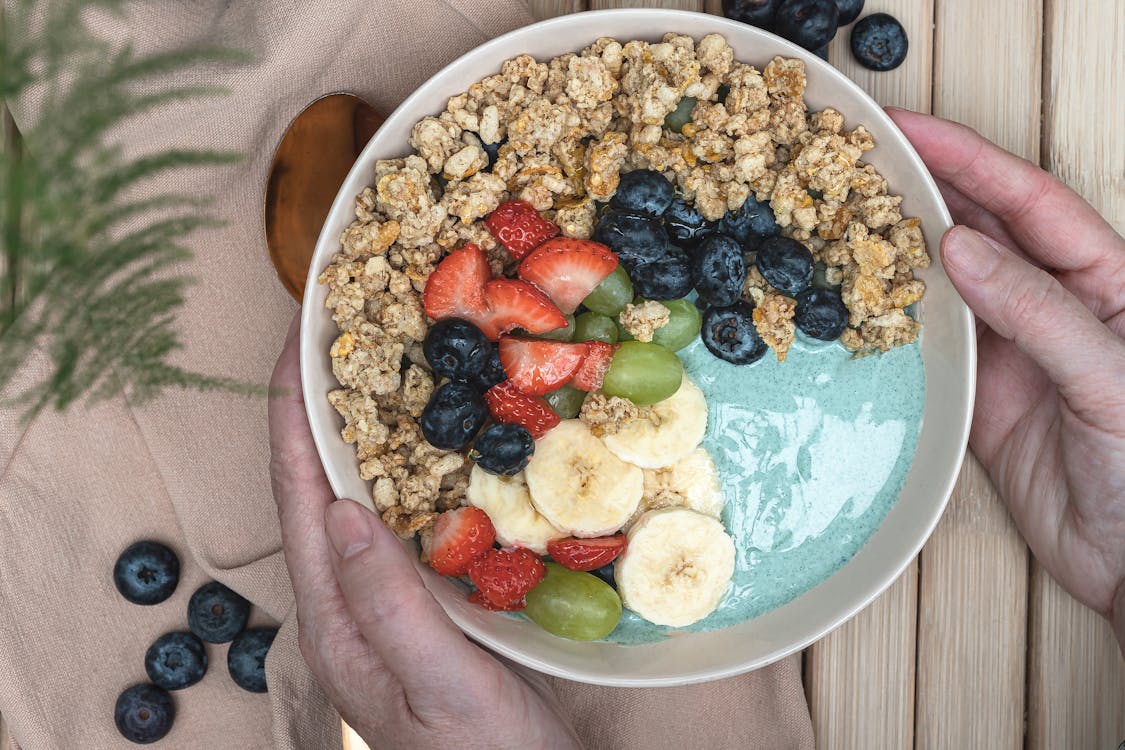Functional Foods: How Nutrient-Packed Ingredients Are Revolutionizing Nutrition
Functional foods are taking the health and wellness world by storm, transforming the way we approach nutrition. These foods, enriched with vital nutrients, offer more than just basic sustenance; they provide additional health benefits that can help improve overall well-being. As more people become health-conscious, understanding the impact of functional foods on our diet is essential.

What Are Functional Foods?
Functional foods are ingredients that go beyond basic nutrition. They contain bioactive compounds that provide health benefits, such as reducing the risk of chronic diseases or promoting optimal health. Common examples include fortified foods, probiotics, and naturally nutrient-dense items like berries and nuts.
Categories of Functional Foods
Functional foods can be broadly categorized into:
Fortified Foods: Foods enriched with additional nutrients. For instance, milk fortified with vitamin D, or orange juice with added calcium.
Probiotics and Prebiotics: Foods containing live beneficial bacteria (probiotics) or ingredients that promote their growth (prebiotics). Yogurt and kefir are prime examples.
Naturally Nutrient-Dense Foods: Foods inherently packed with essential nutrients. Blueberries, salmon, and spinach fall into this category.
The Benefits of Functional Foods
Enhanced Nutritional Value
One of the primary advantages of functional foods is their enhanced nutritional value. They help bridge the nutritional gaps in our diet, ensuring we receive essential vitamins and minerals necessary for good health.
Disease Prevention
Many functional foods have been shown to reduce the risk of chronic diseases. For example, omega-3 fatty acids in fatty fish can lower the risk of heart disease, while fiber-rich foods like oats can help maintain healthy blood sugar levels.
Improved Digestive Health
Probiotics, found in foods like yogurt and sauerkraut, support a healthy gut microbiome. A balanced gut flora can improve digestion, boost immunity, and even enhance mood and mental health.
Weight Management
Functional foods can also aid in weight management. High-fiber foods, such as whole grains and legumes, promote satiety, helping you feel fuller for longer and reducing overall calorie intake.
Incorporating Functional Foods into Your Diet

Start with Breakfast
Begin your day with a nutrient-packed breakfast. Add flaxseeds or chia seeds to your morning smoothie for a dose of omega-3s and fiber. Opt for fortified cereals or whole-grain oats to boost your intake of essential vitamins and minerals.
Snack Smart
Choose snacks that provide health benefits. Nuts, berries, and yogurt are excellent choices that offer a combination of healthy fats, antioxidants, and probiotics.
Cook with Purpose
Incorporate functional ingredients into your meals. Use olive oil, rich in monounsaturated fats, for cooking. Add garlic and turmeric to your dishes for their anti-inflammatory properties.
Stay Hydrated
Functional beverages are another way to enhance your diet. Green tea is rich in antioxidants, while kombucha provides probiotics that support gut health.
The Future of Functional Foods
The functional food market is expanding rapidly, driven by increasing consumer awareness and demand for healthier food options. Innovations in food science continue to bring new functional ingredients to the market, offering even more ways to boost our health through diet.
Personalized Nutrition
The future of functional foods lies in personalized nutrition. Advances in technology and genetic research are paving the way for diets tailored to individual health needs and genetic profiles, maximizing the benefits of functional foods.
Sustainable Choices
Sustainability is also becoming a crucial factor. Consumers are increasingly seeking functional foods that are not only good for their health but also for the environment. This trend is leading to more eco-friendly farming practices and the development of sustainable food products.
Conclusion
Functional foods are revolutionizing the way we think about nutrition. By incorporating nutrient-packed ingredients into our diet, we can enhance our health, prevent chronic diseases, and improve our overall quality of life. As research continues to evolve, the potential of functional foods will only grow, offering exciting possibilities for the future of nutrition.
Whether you are looking to fill nutritional gaps, manage your weight, or simply improve your overall health, functional foods provide a delicious and effective solution. Embrace the power of functional foods and start transforming your diet today

 Cricket Score Counter
Cricket Score Counter Heads or Tails
Heads or Tails
You have not logged in, please Login to comment.